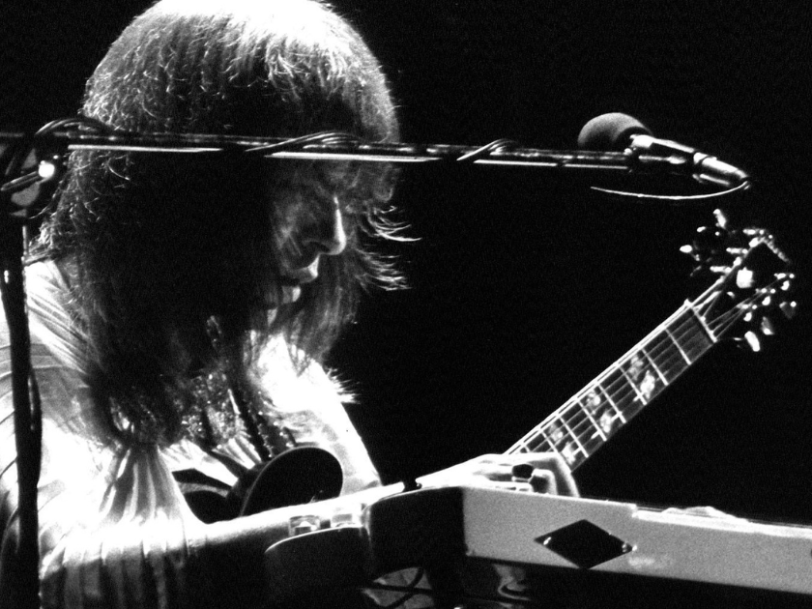In early 1971, after the arrival of new guitarist Steve Howe, English progressive rock band Yes unleashed their third studio album, The Yes Album, a pioneering work that would firmly establish their reputation as prog-rock visionaries. Emerging from high-stakes recording sessions filled with artistic liberation and unbridled creativity, the record found Yes fusing rock with jazz and classical influences across complex and epic arrangements.
Propelled by new guitarist Steve Howe’s masterful solos, Chris Squire’s undulating bass-playing, Bill Bruford’s audacious drumming, Tony Kate’s Hammond organ wizardry and Jon Anderson’s esoteric lyrics, The Yes Album was a groundbreaking work of creative daring and visionary artistry. From its frenzied opening song, Yours Is No Disgrace, to the close-harmony marvel of I’ve Seen All Good People, the album showcased a band operating in a flow state of boundary-pushing proficiency.
This is the story of how The Yes Album shattered genre conventions and opened up new horizons for progressive rock…
Listen to ‘The Yes Album’ here.
The backstory: “We had a spirit in the house – a lady – who liked what we were doing. So we thought that was a good sign.”
Following the departure of their previous guitarist, Peter Banks, Yes were eager to start writing songs for their third studio album, but there was a surprising amount of uncertainty surrounding their commercial fortunes. The prog-rock band’s 1970 outing, the orchestral bonanza of Time And A Word, hadn’t performed as expected, and the group felt they were at risk of being dropped from their label. Thankfully, Phil Carson, then the Senior Vice President of Atlantic Records, continued to vouch for the group and agreed to send them to the English countryside so they could rehearse new material.
With Steve Howe joining the fold armed with a Gibson ES-175, Yes holed up at Langley Farm, in Devon, to flesh out some ideas. Thanks to Howe’s jazz-influenced background and a fondness for country-inspired fingerpicking, the chemistry between band and guitarist was instantaneous. By taking a style he had honed with 60s psych-rock outfit Tomorrow and imbuing it with a more classicist and flamenco-indebted touch, the band felt emboldened to trial more ambitious and expansive musical arrangements.
- Best Yes Songs: 20 Prog-Rock Classics You Can’t Refuse
- Roundabout: How A Classic Yes Song Became A Meme
- ‘Tales From Topographic Oceans’: How Yes Set Sail Into The Unknown
Frequently going on late-night country walks and spending their evenings talking to ghosts on a Ouija board, Yes quickly conjured tracks such as Perpetual Change and Yours Is No Disgrace into being. In fact, there was even a sense that greater supernatural forces were at play: “We had a spirit in the house – a lady – who liked what we were doing,” Jon Anderson later said. “So we thought that was a good sign.”
The recording: “There was a feeling of confidence in the room that we were doing something ambitious and fresh”
By late 1970, the band were ready to begin recording The Yes Album, and entered Fitzrovia’s Advision Studios, in Central London. Having previously served as an engineer for Time And A Word, Eddie Offord was promoted to a new role as co-producer, a crucial appointment that would undoubtedly pave the way for Yes’ future successes. “He was our sixth member,” Steve Howe wrote of Offord, in his autobiography, All My Yesterdays. “An extra pair of ears that we particularly needed when we were out in the studio hammering away.”




